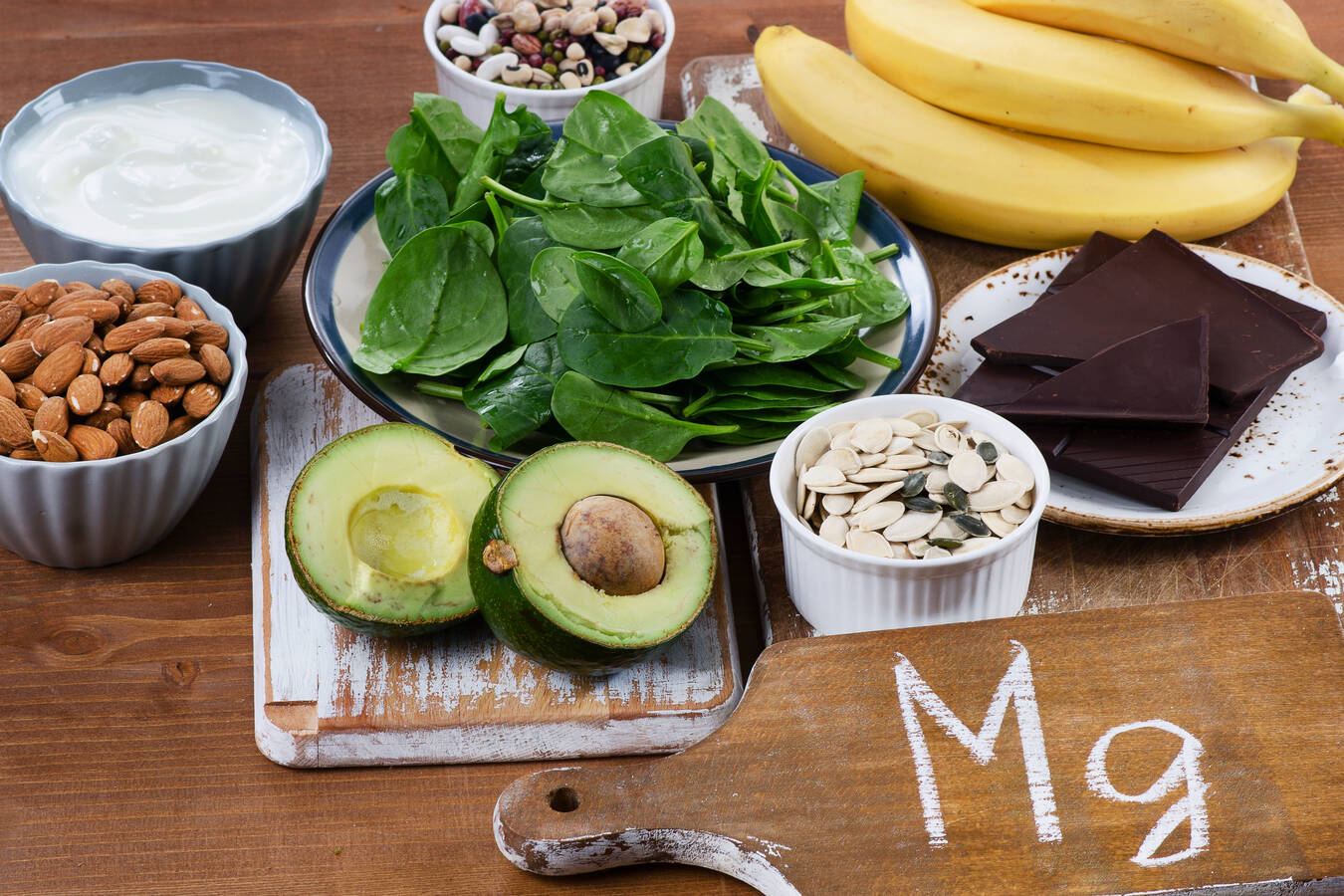Most of us are well-acquainted with the essential building blocks of health, carbohydrates, proteins, fats, vitamins, and minerals. But what if I told you there’s a tiny trace mineral, often overlooked, that could be the secret to enhancing your heart health, reviving the glow of your skin, and shielding your body from chronic illnesses like cancer?
Sounds almost too good to be true?
Well, it is a micronutrient our bodies require in only the smallest amounts with a huge impact.
When it comes to trace elements, the saying ‘a little goes a long way’ couldn’t be more accurate. Today, we’re taking a closer look at this underrated powerhouse: selenium.
You’ve probably heard the name in passing, but its role in maintaining optimal health is something truly worth exploring. Let’s uncover why this trace mineral could be the missing link in your journey to better health.
What Makes Selenium Essential?
Selenium is a trace mineral vital for various biological processes. It is a powerful antioxidant, protecting cells from damage and supporting the immune system. Selenium also helps regulate thyroid function, improves fertility, and combats inflammation. Studies have linked selenium deficiency to numerous health concerns, highlighting its indispensable role.
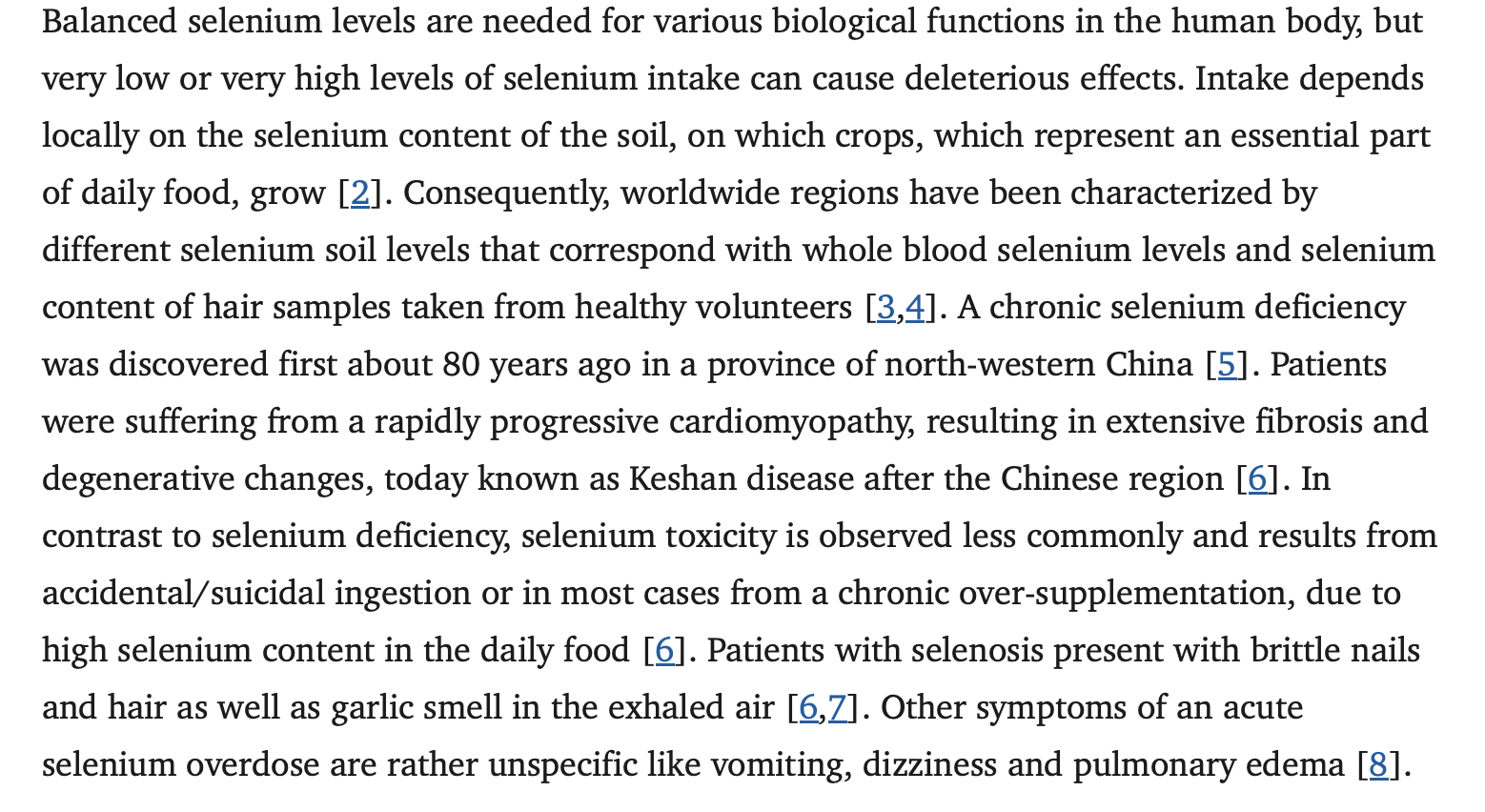
Let’s see how selenium work wonders to your overall health:
1. Selenium and Heart Health: Protecting Your Most Vital Organ
When it comes to your heart, selenium works with Vitamin E as a powerful antioxidant duo. This lowers the risk of atherosclerosis, a condition where plaque buildup restricts blood flow, potentially leading to heart attacks or strokes.
It also inhibits inflammation in your arteries, helping them stay elastic and clear. This means better blood flow, reduced risk of blockages, and a healthier cardiovascular system.
If you’ve had heart surgery, a stent, or even elevated CRP levels (an inflammation marker), selenium can be a game-changer. It’s not just about managing symptoms but addressing the root causes of inflammation and oxidative stress.

2. Skin That Glows: The Beauty Benefits of Selenium
Everyone wants glowing skin, right? Selenium helps in producing glutathione, one of your body’s most powerful antioxidants. Glutathione helps repair skin damage, reduce wrinkles, and maintain elasticity. If you’re looking for natural ways to keep your skin healthy, start with the basics—selenium.
Selenium combats oxidative stress that can lead to premature aging, dullness, and skin damage. This trace mineral also supports skin elasticity and repair, helping maintain a youthful glow and protecting against environmental stressors. Its antioxidant properties help reduce the impact of UV damage, inflammation, and oxidative stress on skin cells.
By incorporating selenium-rich foods into your routine, you’re nourishing your skin from within, ensuring it stays healthy, hydrated, and glowing.

3. Reduce Risk of Cancer with Selenium
Did you know selenium is chemo-preventive? That means it doesn’t just reduce your risk of certain cancers, it also helps manage your body if you’re already undergoing treatment. Selenium strengthens your immune system, making it smart enough to recognize and destroy rogue cancer cells.

It also reduces the side effects of chemotherapy and radiation, giving you a better shot at managing the condition. The science is clear: selenium isn’t a cure-all, but it’s a critical piece of the puzzle when it comes to cancer prevention and management. By targeting inflammation and oxidative damage, selenium helps in both cancer prevention and management.
4. Selenium as an Ally Against Inflammatory Diseases
Nearly 96% of diseases are rooted in inflammation. Chronic inflammation lies at the heart of almost all major diseases, from arthritis and autoimmune disorders to heart disease and diabetes.
Selenium acts as a natural anti-inflammatory agent by lowering CRP levels and reducing oxidative damage. This makes it invaluable in managing inflammatory conditions such as rheumatoid arthritis, inflammatory bowel disease, and liver disorders like cirrhosis.
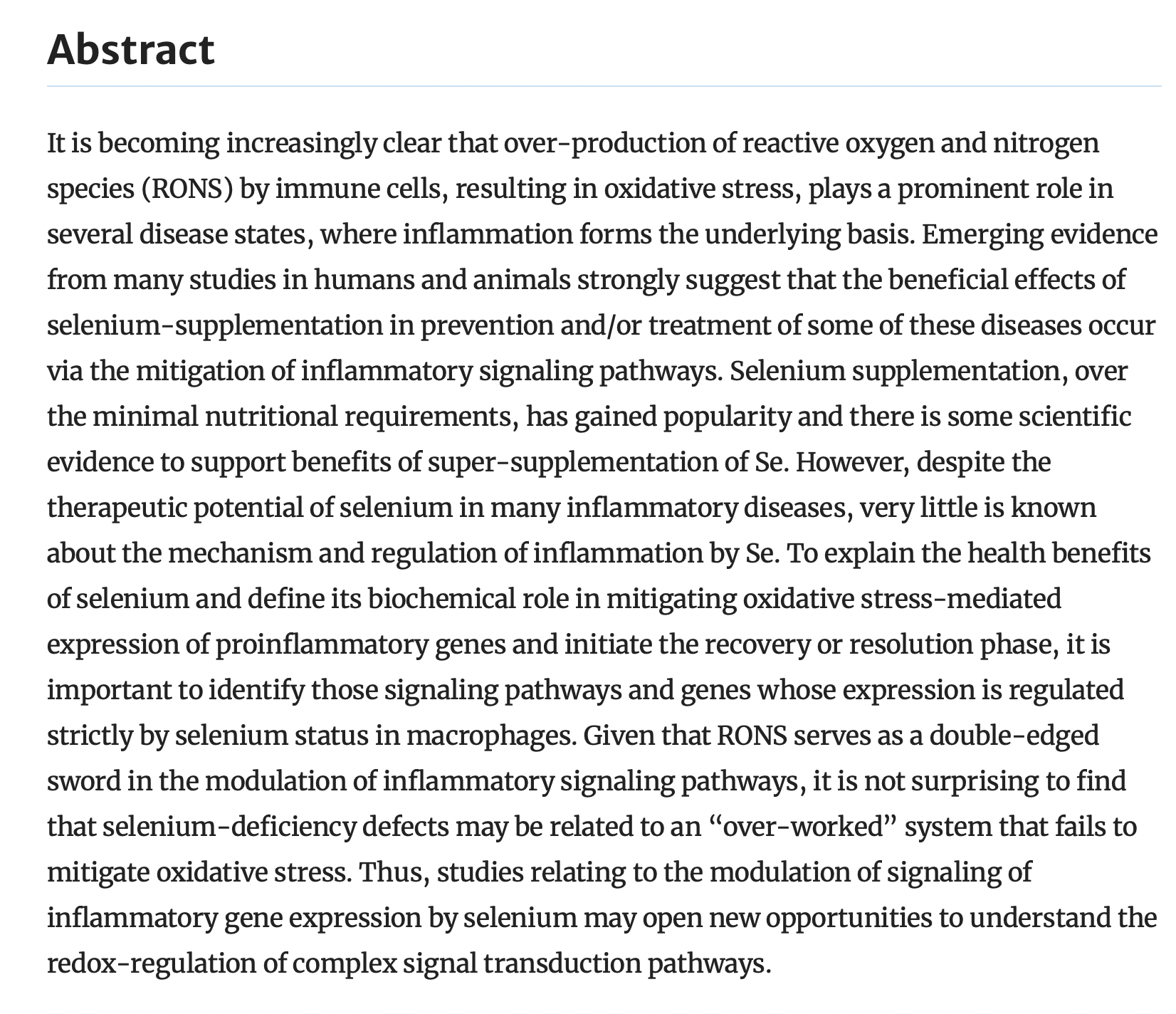
5. Selenium for Balancing Thyroid Function
Have you ever wondered why so many thyroid issues go unresolved? For most people, it comes down to deficiencies, selenium being one of the most common.Your thyroid gland plays a central role in regulating metabolism, energy, and hormonal balance. Selenium aids in the conversion of thyroid hormones, ensuring that your body has the active forms it needs for proper function.
This is why selenium is often used in managing conditions like Hashimoto’s thyroiditis and hypothyroidism. Combine it with a clean diet, better sleep, and stress management, and you’ll start to see your thyroid gland heal.
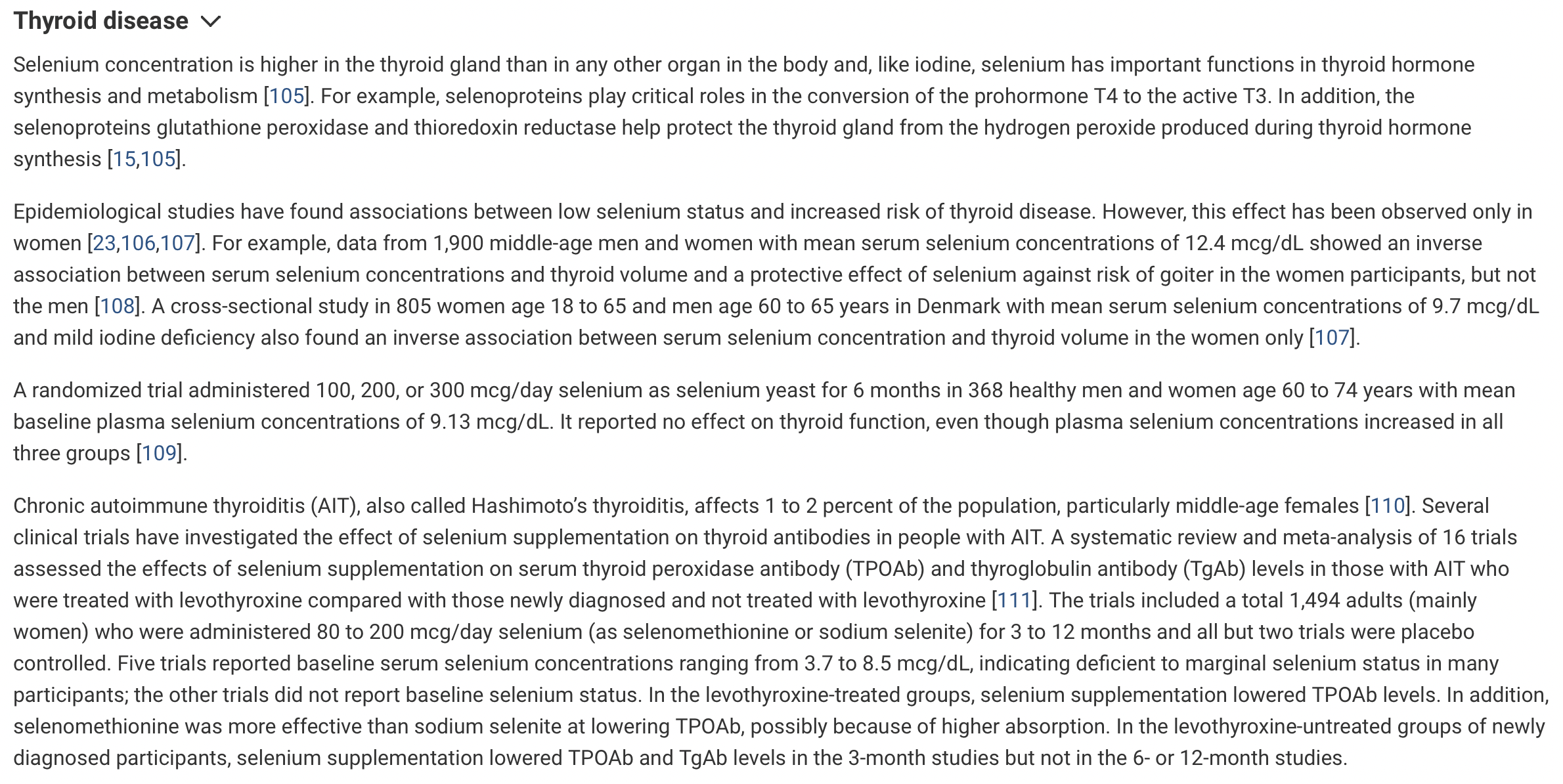
6. Selenium and Fertility: A Key Player
In men, selenium is essential for producing healthy sperm – it influences sperm count, motility, and shape, all of which are crucial for successful fertilization. For women, selenium’s antioxidant properties protect reproductive cells and improve overall reproductive health.
Studies in the Journal of Trace Elements in Medicine and Biology underscore the link between selenium deficiency and infertility, highlighting the importance of this trace mineral for both men and women. Ensuring adequate selenium intake can significantly enhance fertility, offering hope to couples on their journey to parenthood.

7. Selenium and Cognitive Health: A Shield Against Decline
Emerging research highlights the role of selenium in supporting cognitive function and potentially inhibiting the progression of neurodegenerative conditions like Alzheimer’s disease. Selenium is a key component of selenoproteins, which help neutralize oxidative stress and reduce inflammation, two major factors implicated in brain aging and cognitive decline.
Studies have shown that individuals with Alzheimer’s often have lower selenium levels, suggesting a potential link between deficiency and the disease. The antioxidant properties of selenium may help protect brain cells from damage, improving memory and overall mental clarity. By incorporating selenium-rich foods into your diet, you may support brain health and add a layer of protection against age-related cognitive challenges.
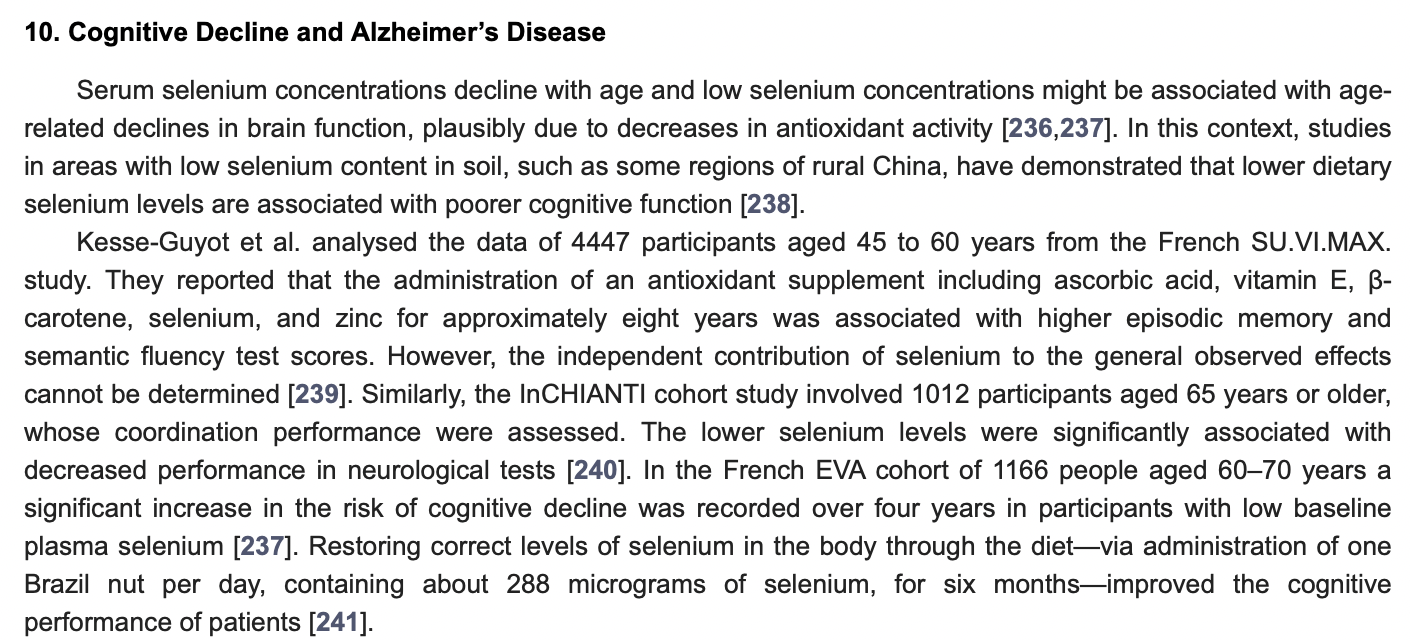
Where to Find Selenium?
The good news is that selenium is naturally abundant in a variety of foods, making it accessible through a balanced diet.
Below are some of the best dietary sources of selenium and how you can incorporate them into your meals:
1. Brazil Nuts
Brazil nuts are a nutritional powerhouse and one of the richest sources of selenium, with just one or two nuts often exceeding your daily requirement. However, their selenium content can vary depending on the soil in which they’re grown.
These nuts make an excellent snack or topping for oatmeal, yogurt, or salads, but moderation is key to avoid overconsumption.

2. Seafood
Fish like tuna, salmon, and sardines, along with shrimp and oysters, are not only delicious but also packed with selenium.
Including seafood in your nutritional routine, if it suits you two to three times a week is a flavorful way to meet your selenium needs while also benefiting from heart-healthy omega-3 fatty acids.

3. Meat
Animal-based hormone-free proteins such as chicken, turkey, and beef are reliable sources of selenium. These options fit easily into a variety of cuisines and meal plans, providing both selenium and other essential nutrients like iron and zinc.
4. Eggs
Free range eggs are a nutrient-dense food that contains selenium along with protein, vitamins, and healthy fats. They’re incredibly versatile, whether you prefer them scrambled, boiled, or as part of baked dishes.
5. Whole Grains and Seeds
For those who prefer plant-based sources, whole grains and seeds are excellent options. Sunflower seeds, wheat germ, oats, and even mushrooms provide moderate amounts of selenium. These can be incorporated into smoothies, cereals, or baked goods for added nutritional value.
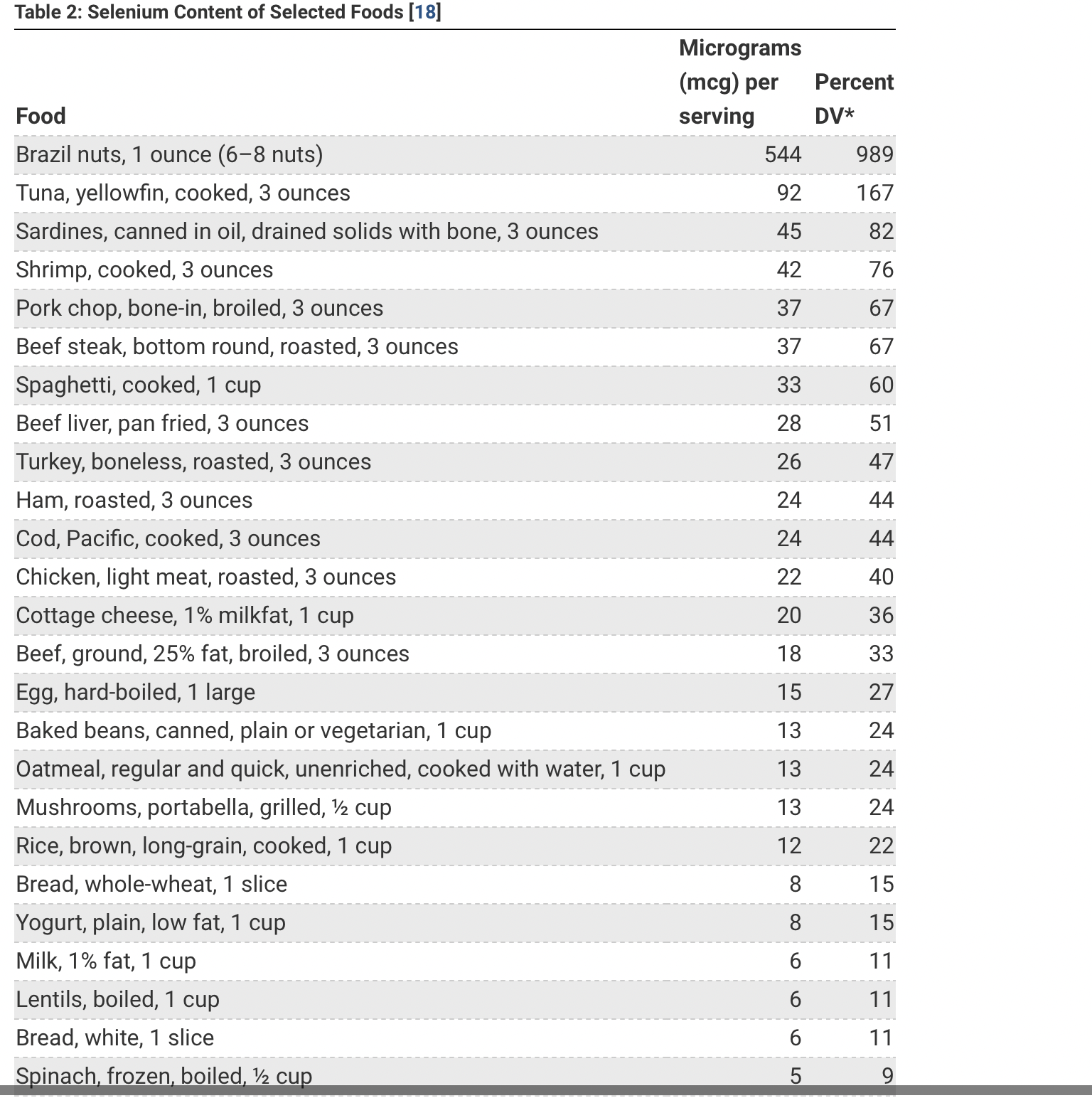
Supplementation: When Food Isn’t Enough
In certain situations, supplementation might be necessary to ensure adequate selenium intake, particularly if you have a health condition that affects nutrient absorption or increases your selenium needs. Conditions like Hashimoto’s thyroiditis, chronic inflammation, or infertility might require tailored supplementation plans under the guidance of your expert.
However, it’s important to approach supplementation with caution. Selenium is a micronutrient where balance is everything, too little can lead to deficiencies, while too much can result in selenium toxicity, characterized by symptoms such as gastrointestinal distress, hair loss, or a metallic taste in the mouth.
Before starting any supplementation, consult with your healthcare provider to determine the appropriate dosage for your individual needs. Testing your selenium levels through bloodwork can provide valuable insight into whether you’re getting enough of this essential trace mineral.
How Much Selenium is Too Much?
While selenium is essential for good health, like many nutrients, more is not always better. Consuming excessive amounts of selenium can lead to a condition called selenium toxicity, also known as selenosis.
Striking the right balance is necessary to avoid the adverse effects associated with overconsumption.
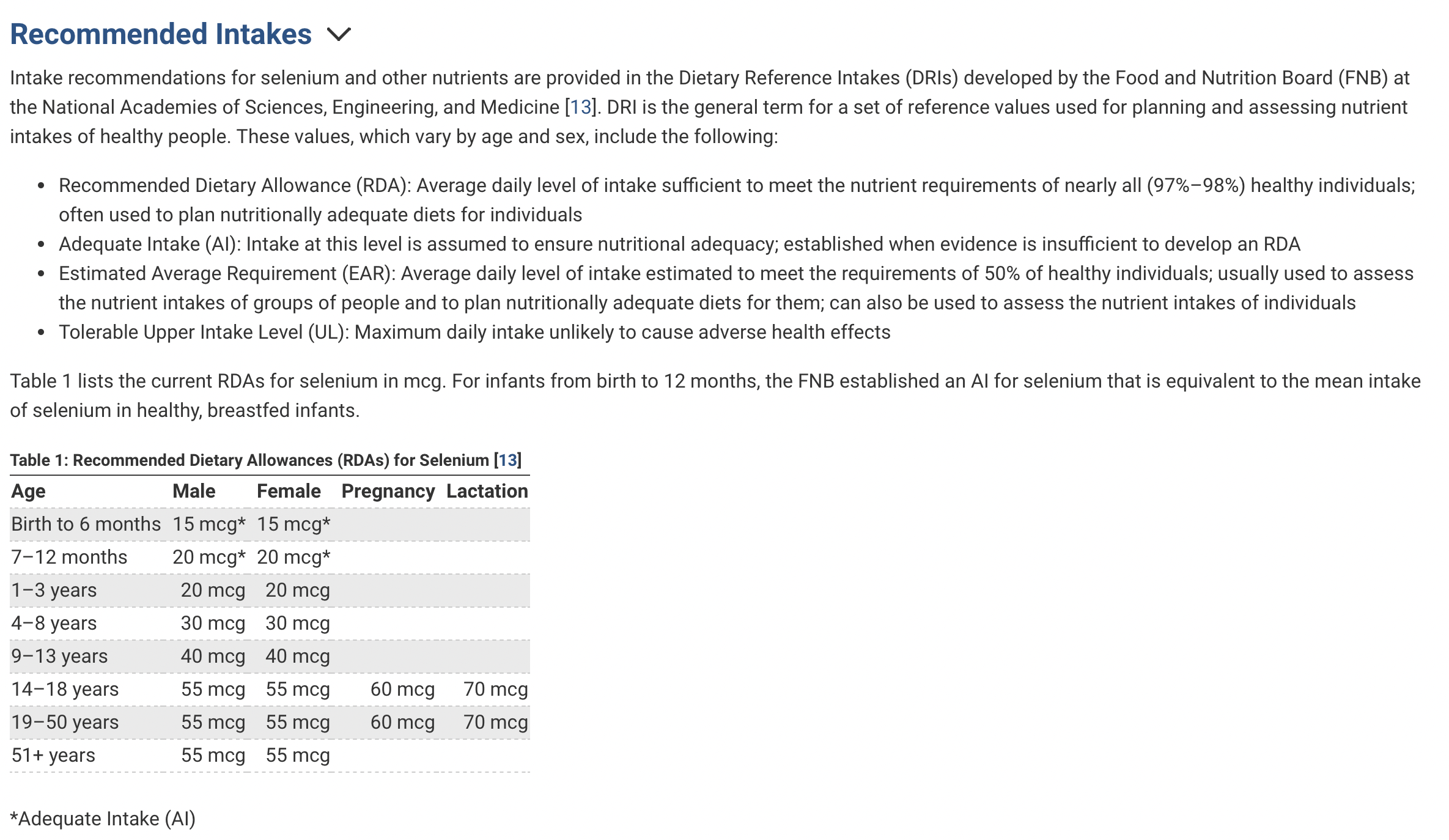
Signs and Symptoms of Selenium Toxicity
Excessive selenium intake can manifest in both mild and severe symptoms. Early warning signs include:
- A metallic taste in the mouth
- Gastrointestinal discomfort, such as nausea and diarrhea
- Hair thinning or loss
- Brittle nails or nail discoloration
In more severe cases, chronic overexposure can lead to:
- Neurological abnormalities, such as tremors or memory issues
- Fatigue and irritability
- Skin rashes and lesions
- Damage to internal organs
Common Sources of Overexposure
Selenium toxicity is rare when obtaining selenium solely from food, as the body regulates absorption from dietary sources. However, overuse of supplements or consuming large quantities of selenium-rich foods like Brazil nuts can push intake into the toxic range. For instance, a single Brazil nut can contain as much as 90 mcg of selenium, meaning just a few could exceed the upper limit if eaten regularly.
How to Stay Safe?
Selenium supports fertility, heart health, immunity, and even cognitive function. It’s not just about preventing deficiencies; it’s about giving your cells what they need to thrive.
- Limit High-Selenium Foods: While nutrient-rich foods like Brazil nuts are excellent for meeting selenium requirements, moderation is key to avoiding overconsumption.
- Regular Health Checks: If you’re supplementing with selenium or have concerns about your intake, consider regular blood tests to monitor your selenium levels.
- Monitor Supplement Use: If you’re taking selenium supplements, ensure the dosage aligns with your healthcare provider’s recommendation. Avoid combining multiple supplements that contain selenium unless advised.
When to Seek Medical Advice?
If you suspect selenium toxicity due to symptoms or high intake, consult a healthcare provider immediately. Early intervention can help prevent long-term complications. By staying informed about safe intake levels and mindful of your diet and supplementation, you can get the benefits of selenium without the risks.
The Bigger Picture
Start small. Add selenium-rich foods to your meals. Take an informed approach to supplements if needed. And remember, health isn’t about perfection, it’s about balance.
Here’s to health built on the basics. Because sometimes, the smallest things are the most powerful.
Disclaimer: The information provided in this article is for educational and informational purposes only and should not be considered medical advice. Always consult with a qualified healthcare professional before making any changes to your diet, lifestyle, or supplementation, especially if you have existing health conditions, are pregnant, or are taking medications. Selenium intake should be carefully managed, as excessive consumption can lead to toxicity. If you suspect a deficiency or have concerns about your selenium levels, seek guidance from your healthcare provider to determine the best course of action tailored to your individual needs.
Take the first step towards improved health with Luke’s expertly designed Wellness Program.
With personalized plans, nutritional guidance, and dedicated support, our team ensures your journey is tailored to your unique needs.
Schedule a one-on-one consultation by calling us at 1800 102 0253 or emailing us at [email protected].



